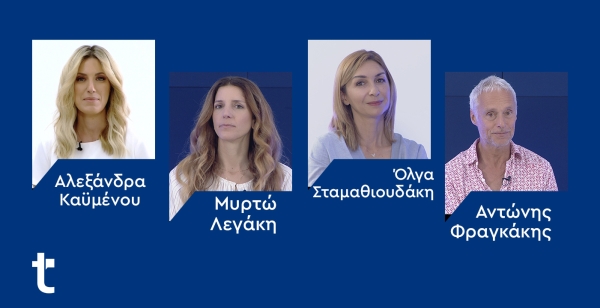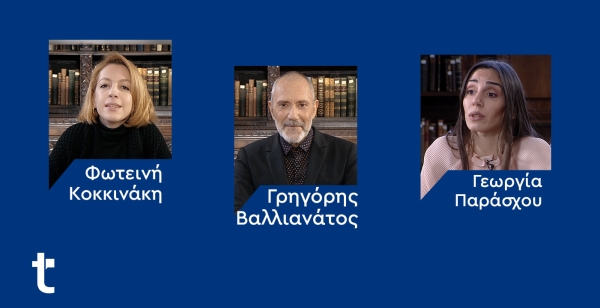Nowadays it’s pretty common to hear that many talented women studied to become engineers or data scientists and ended up in non-tech jobs or positions that are less competitive and demanding while others work in different kinds of toxic environments and feel undervalued.
Moderator
Alexandra Kaimenou, Journalist
Experts
Denia Kanellopoulou, Postdoctoral Researcher - Innovation Services Specialist, NCSR Demokritos
Chrysavgi Salaka, VP, Solution Design & Customer Consulting, Qualco Group
Evangelia Balatsou, Neuroscientist in artificial intelligence, Speech AI expert, founder of Greek Girls Code and member of the Lean In Startup Community
Nowadays it’s pretty common to hear that many talented women studied to become engineers or data scientists and ended up in non-tech jobs or positions that are less competitive and demanding while others work in different kinds of toxic environments and feel undervalued.
The underrepresentation of women in the field of STEM sciences and research is a given fact. No more than two years ago, only 4% of women in Greece participated in STEM fields compared to a correspnding 20% of men. According to a recent McKinsey survey, 13 trillion dollars would be added to the global economy if women were hired into digital fields and jobs at the same rate that men are hired. Businesses, international corporations, the Greek economy as well as the global economy have very much to lose from this situation, as they lack the creativity, knowledge and expertise of women.
- What challenges do women face in technology and research?
- Why is it important to increase their rates and what are the things we need to do to achieve this?
- Is it true that in these traditionally male-dominated fields, women face countless stereotypes and prejudices than in other, less male-dominated fields?

Alexandra Kaimenou was born and grew up in Athens. She studied at Harokopio University in the Department of Geography and at the same time she graduated from ANT1 Media Lab.
She made her first steps in journalism in 2012, making a show dedicated to the Greek community, on ANT1 Satellite Channels.
Since late 2015 she’s worked in the Newscast of ANT1, initially doing freelance reporting and then as an accredited journalist at the Ministry of Labor.
Later, she presented the show "Kalokairi Mazi" on ANT1, in the summer of 2019. In the autumn of the same year and for one season she worked alongside Giorgos Papadakis in the show “Kalimera Ellada”.
Since October 2020, she belongs to the staff of ERT, presenting the daily news program "Syndeseis” together with Costas Papachlimintzos.
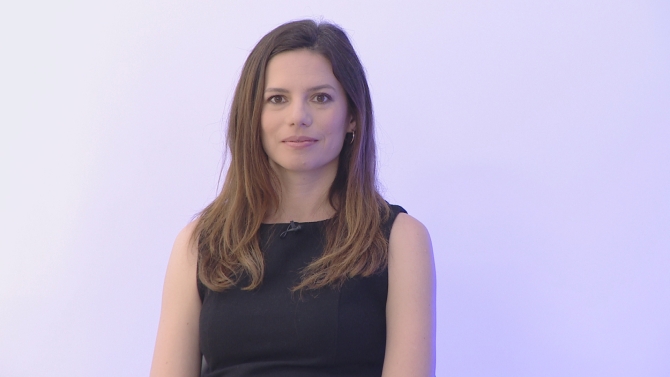
Dr. Denia Kanellopoulou is a Graduate Electrical and Computer Engineer with a master's degree in Telecommunication Networks Management and Economics and a PhD in Wireless Communications. Since 2009 she has worked in development and innovation roles in large organisations in Greece and abroad and in many data management projects. At the digital innovation hub "ahedd", she bridges the worlds of research and market, analysing the needs of businesses and organisations and creating innovative digital transformation solutions using cutting-edge technologies such as Artificial Intelligence, Big Data, Internet-of-Things and 5G.
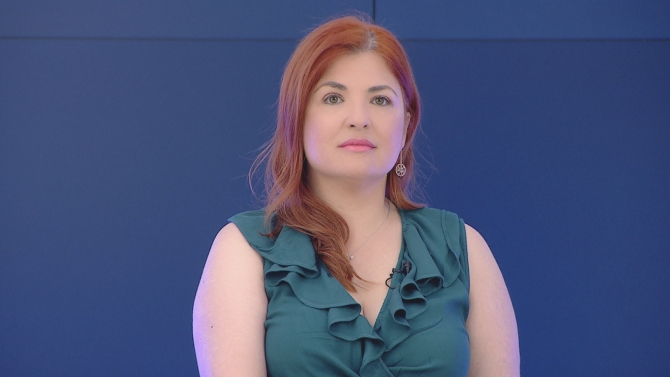
Chrysavgi Salaka joined QUALCO in 2005 and currently holds the position of VP, Solution Design & Customer Consulting. She and her team are in charge of formulating Qualco’s technology solutions offering and their successful implementation to clients. Prior to that, she was a senior project manager delivering numerous Collections & She recovers technology projects in financial institutions and servicers across Europe as well as leads all business development presales activities in QUALCO. She has a Chemical Engineering background and an MBA degree.
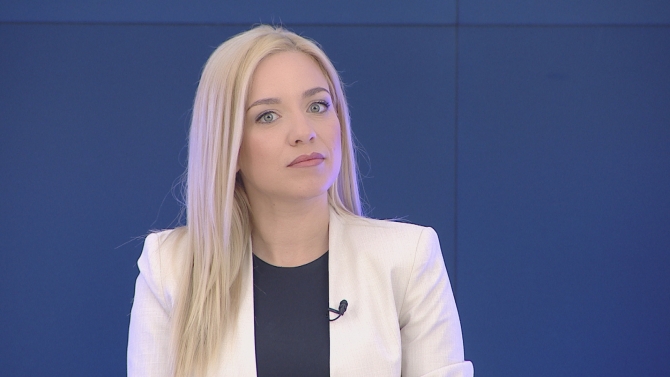
Dr. Evangelia (Lilian) Balatsou is a cognitive neuroscientist with a special interest in how our brain perceives, processes and produces language.
She received a PhD in neuroscience from Bangor University and now works at voiceweb as a Speech Scientist and Project Manager. She has investigated language and the human brain during speech using EEGs, behavioral experiments and computer simulations.
Her love for the dissemination of science was evident when she taught scientific writing and scientific communication as early as her PhD. Today she is the founder of Greek Girls Code, an initiative that started from account takeovers on Twitter, giving a step and inspiration to young girls to engage in the positive sciences.










